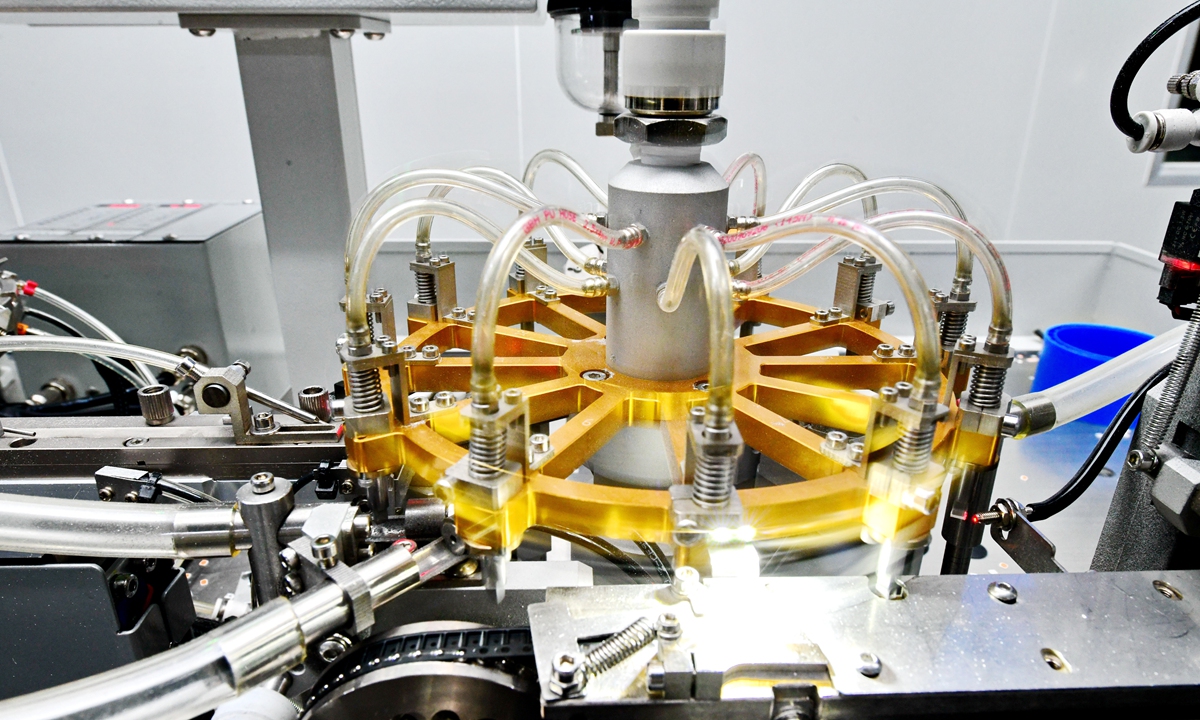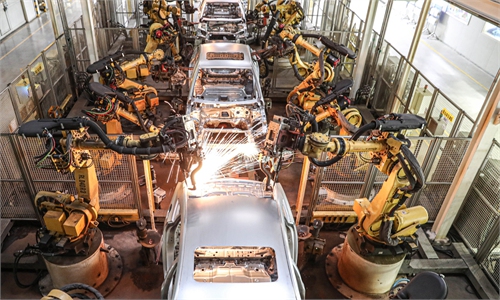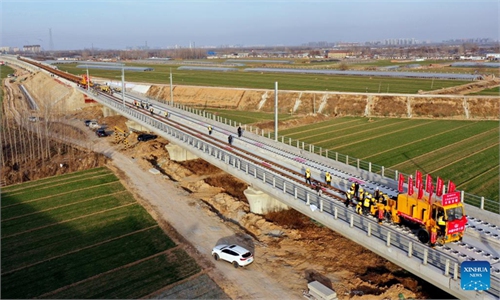
Manufacturing equipment of semiconductor products Photo: VCG
China's official manufacturing purchasing managers' index (PMI) bounced back into the expansion territory in January for the first time since last September, a strong signal of China's accelerating economic recovery following the country's optimization of COVID measures.
The figure stood at 50.1 in January, up from 47 in December, according to data released by the National Bureau of Statistics (NBS) on Tuesday. The figure beat a forecast of 49.8 by 25 economists polled by Reuters.
The manufacturing PMI is an index of the prevailing direction of trends in the manufacturing sector. Generally, an index reading above 50 indicates expansion in activity and a reading below indicates contraction.
China's manufacturing PMI hit 50.1 last September, but since then has been stuck in contraction territory and has faced downwards pressure as a result of coronavirus-triggered economic fluctuations.
However, since China optimized its COVID policies around the end of last year, market demands have snapped back and supply chains are now operating in a more stable state, lifting up the manufacturing sector across the board.
Zhou Maohua, an analyst at China Everbright Bank, said that the main reason manufacturing PMI returned to expansion territory in January was due to increased domestic demand amid the lessened impact of the epidemic, in addition to the sector's production environment and company operation expectations improving under supportive government policies.
"A turning point of recovery has basically formed for China's manufacturing sector," he told the Global Times.
But he also stressed that the Spring Festival holidays, which typically slow production, might lead to some extent of disruptions in enterprise production in January and February, which will be reflected in the economic figures later.
The private Caixin manufacturing PMI, which centers more on small firms and coastal regions, is expected to be published on Wednesday.
Meanwhile, the PMI for China's non-manufacturing sector came in at 54.4 in January, up from 41.6 in December.
Zhou attributed the rebound to rising demand across the services sector after policy optimization.
China's consumption ranging from tourism to the domestic box office surged during the recent Spring Festival holidays, with some sectors recording highest earnings in the past three years.
The IMF upgraded its forecast for the global economy on Tuesday. The organization is now forecasting that China's GDP will grow at 5.2 percent in 2023, while global economy will expand at 2.9 percent.



